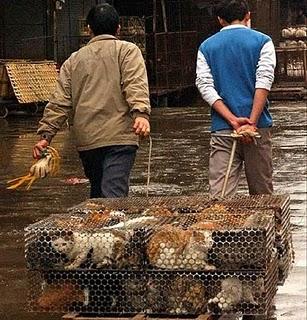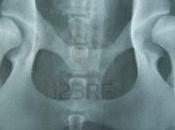
Di seguito quanto riportato oggi su Shanghai Daily sul "salvataggio" di 60 gatti da parte di un gruppo di volontari cinesi.
Rescuers battle to save 60 cats from menus
IT was on the end of a shabby alley that Tang Xuesong, 30, knelt down and opened up a dirty sack. Inside was a thin cat with black and white markings, dead, stiff and decaying.
"Murderers!"
Tang shouted to seven cat dealers who stood around the dead cat, watching while covering their noses to avoid the piercing smell.
Tang was among a group of at least 40 cat-lovers who volunteered to save over 60 cats from a 20-square-meter stuffy warehouse, the hideout of seven cat dealers in an insignificant alley of Tongchuan Road in Shanghai.
The rescue started at 9am yesterday, ending at 4pm, after one of the volunteers paid 2,000 yuan (US$298) to buy the cats from the dealers, and the dealers' landlord - seeing the intensity of the protests - finally demanded they open the warehouse and free the cats.
Otherwise the cats might have faced the cruel fate the cat dealers had planned for them: To sell them to restaurants outside the city - in Guangdong or Henan province - for special dishes to be served at very low prices: 20 yuan for a small one, and 30 for a big one.
According to one volunteer, a truck had already taken away some cats earlier in the morning.
The 60-plus cats were kept in four cages, piled one upon another in the dark windowless room. To save money, cat dealers said in an interview, they kept the cats in the warehouse for several days before more were collected so the dealers could cut the number of transportation trips. During the wait, some small cats died because they had little to eat and no space to move.
The dealers caught cats at complexes at night by luring them into cages with dead sparrows.
They used sacks to collect the dead cats, and sold them at a lower price. About 10 sacks with cat corpses were found on the scene.
"It's the death camp for cats," said volunteer Zhang Caihong.
Standing beside the cat dealers were a group of policemen and a group of officials from the local government bureau for industry and commerce, but the volunteers criticized them for inaction.
A cat dealer told the officials they were "raising the cats for fun."
The policemen wouldn't force open the door of the warehouse, saying they first needed permission from their superiors. After several hours of argument, groups of volunteers cracked open the warehouse door at 2pm.
Seven cat dealers rushed out and fought them, breaking one's cell phone, slightly injuring another one's lips, and hitting a young girl who was trying to photograph them.
The policemen blamed the volunteers for breaking into a private home.
"I study the law, too," said Yang Baoguo, the dealers' leader, known as one of the five biggest cat dealers in Shanghai.
"We are reasonable people," Yang said. "Law-abiding citizens. No one rules that cats can't be traded."
It was Yang's landlord, summoned by the volunteers, who finally demanded the cat dealers open the warehouse and free the cats at 4pm. The landlord, surnamed Du, said he would force the dealers to leave in seven days and he never rent to them again.
Volunteers donated their own money to send the cats to veterinarians for sterilization operations and vaccines.
Then they asked, "What shall we do next with the cats?"
In a city where cats are not protected by laws, that was hard to answer.
"The small-animal protection law is still being drafted, which means that cats are not protected in the city, at least for now," said the chief of Shanghai Small Animal Protection Association, surnamed Zhang.
But Zhang said the trading of cats for eating was banned by the Animal Epidemic Prevention Law, which was agreed by officials with industrial and commercial bureau.
"But we don't have any direct evidence to show that they were trading the cats for eating purposes," said one of the officials.
The rescuers hoped that some kind residents would come and adopt them.
But other cats would be strays again, wandering around the streets and hunted by the cat dealers.






